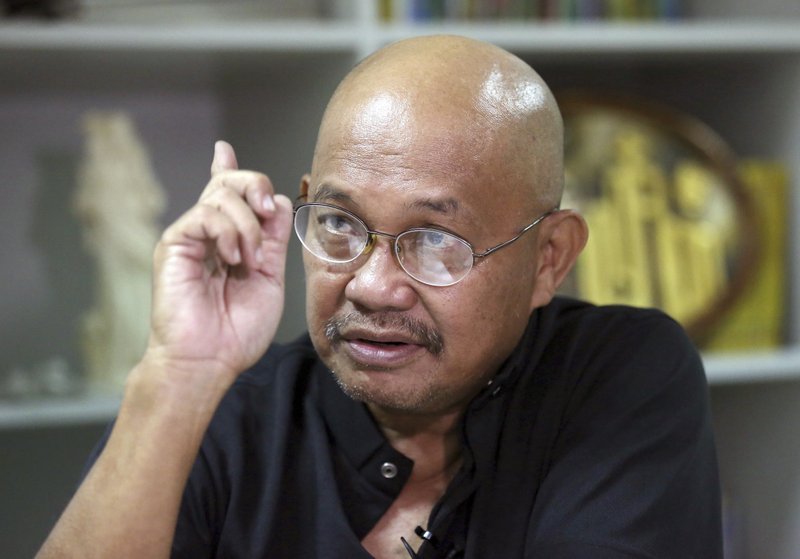MANILA, Philippines -- A Roman Catholic priest who was one of the earliest critics of Philippine President Rodrigo Duterte's deadly crackdown on drugs has gone into hiding because of what he says were signs he's being targeted by motorcycle-riding hitmen.
The Rev. Amado Picardal said Monday that he has gone into a "more secure location" and out of the public view after workers in a Catholic monastery that he visits in central Cebu city reported seeing motorcycle-riding men watching the compound, including two men who asked for his whereabouts.
"I couldn't go out for biking, running, walking due to security concerns," Picardal said in an email in response to questions about his safety concerns, which he first disclosed in a personal blog.
"I have left my hermitage in the mountain and transferred to a more secure location to continue my life as a hermit far away out of reach from the death squad," he said.
The 63-year-old priest said that he helped document alleged extrajudicial killings under Duterte's campaign when Duterte was still mayor of southern Davao city and that he would continue criticizing the killings despite his safety concerns.
Picardal added that he is willing to testify if asked by the International Criminal Court, where a complaint against Duterte in relation to the drug killings is being examined.
Duterte has denied condoning killings under the crackdown, which according to official police pronouncements has left more than 4,500 suspects dead since he took office in mid-2016. International human-rights agencies have cited far higher death tolls, which they said included children and innocent civilians.
Presidential spokesman Harry Roque said Picardal should file for a so-called writ of amparo "if there's basis for his fears," referring to a high court petition that aims to protect the human rights of anybody who feels threatened by state forces.
Picardal gained public attention with his cross-country biking to protest the drug killings and promote peace talks with communist rebels.
When he was assigned in Davao, Picardal said he compiled a report on drug killings from 1998 to 2015, when Duterte served as mayor of the vast port city, and spoke for a nongovernment coalition that opposed extrajudicial killings and helped the Commission on Human Rights investigate the deaths.
Duterte has said none of those investigations turned up any evidence against him. Picardal said the investigations failed to pin down Duterte then because witnesses against him "were scared to testify." A number of witnesses linking Duterte to the killings, however, have turned up in Senate investigations after Duterte rose to the presidency, Picardal said, adding that he has helped provide sanctuary to former members of the so-called Davao death squads who may testify before the International Criminal Court.
"This is most likely one of the reasons that I am being targeted by the death squad," Picardal said.
A Section on 08/28/2018

